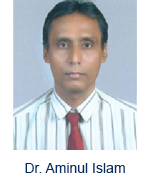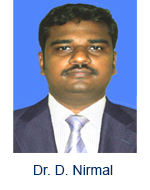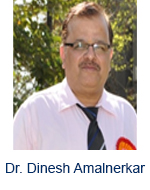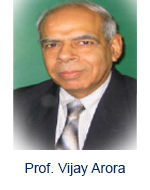Editorial Board
Biography
 |
Dr. Aminul Islam (Member of IEEE since 2010, corporate member of IE(I)) received the B.Tech. degree in computer engineering from the Institution of Engineers (India), Kolkata, India, in 2001, M.Tech. degree in electronics and communication engineering from the Birla Institute of Technology (BIT) (Deemed University), Mesra, Ranchi, India, in 2006 and Ph.D. degree from the Electronics Engineering Department of Aligarh Muslim University, Aligarh, India, in 2013. Until November 2006, he was with Indian Air Force. Since November 2006, he has been in the Department of Electronics and Communication Engineering, BIT, where he is currently an Assistant Professor. His Research interests include VLSI/CAD design for classical CMOS, non-classical CMOS and non-CMOS (non-Silicon) technologies [which center around the emerging nanoelectronics and spintronics devices like FinFET, CNFET (Carbon Nanotube Field Effect Transistor), NWFET (Nanowire FET), GNFET (Graphene Nanoribbon FET), TFET (Tunnel FET), and spin transfer torque (STT)-based MTJ (magnetic tunnel junction)], Single Electron Transistor (SET), Multivalued Logic, Reversible Logic, robust design of semiconductor memory (SRAM), STT-MTJ based magnetic memory (MRAM), phase change random access memory (PCRAM), magnetic logic circuits, power- and variability-aware design, RF nanoscale device modeling, design of ultralow-power nanoscale circuits for portable/wearable/energy-harvesting applications. He is the author or coauthor of more than 61 research papers in reputed journals (21, 2 - IEEE transactions, 2 - Microelectronics Reliability, 1 - International Journal of Electronics, 1 – JOLPE, 15 others), conferences (40), and book chapter (1). Dr. Islam was a recipient of the National Scholarship (Govt. of India) for three years during study in high school in 1983, Best Paper Award for the paper entitled “Design of 2:1 Multiplexer and 1:2 Demultiplexer Using Magnetic Tunnel Junction Elements,” at IEEE International Conference on Engineering Trends in VLSI, Embedded Systems, Nanoelectronics and Telecommunication Systems (ICEVENT) in 2013, Best paper award for the paper entitled Performance Evaluation of Op Amp Using Emerging Device", at Diamond Jubilee Zonal Seminar on Advances of Electronics, Information and Communication Technology in India in 2013. |
|---|
 |
Dr. D.Nirmal is a Associate Professor in the Electronics and Communication Engineering Department in University of Karunya. He received his/her Ph.D.Degree in Information and Communication Engineering from Anna University in 2012. Then worked as a in Karunya University. He/she is having several. Years of Experience in the field of Nanoeletronics. His Area of Expertise includes: VLSI, Nanoelectronics and Optoeletronics. He is the author of several refereed international journal publications and has received the best research paper award and the best faculty award for his contribution. |
|---|
 |
Dr. Dinesh Amalnerkar is the Executive Director at the Centre for Materials for Electronics Technology (C-MET), an autonomous research institute of Department of Electronics and Information Technology, Ministry of Communications and Information Technology. He received Ph.D. Degree in Physical Chemistry from National Chemical Laboratory (Pune University) in 1982. He subsequently worked with Elpro International Ltd (affiliated to GE, USA) as Scientist till 1985. During1986-1987, he had taken up the Visiting Assignment at Gifu, University, Japan & returned to join the post of Pool Scientist at NCL, India. In 1991, he joined C-MET as a Scientist. In March 2009, Govt. of India has appointed him as the Executive Director of C-MET to look after its 3 centers located at Pune, Hyderabad & Thrissur. While placed at C-MET, he revisited Gifu University, Japan, during September-December 1993 & August-November 2000 as an AIEJ Researcher and worked as a Brain-Pool Visiting Scientist at Korea Research Institute of Chemical Technology, Daejon, Korea during 2006-2007. He has also taken up short-term Visiting Scientist assignments at Universities and Institutes in Slovenia, Bulgaria, Saudi Arabia, Switzerland and Singapore. He has published more than 170 papers in peer-reviewed international journals, won 12 awards for oral/poster presentations in various national/international symposia. His Area of Expertise includes: nanomaterials, semiconductors, photoconductors, polymer nanocomposites etc. |
|---|
 |
Prof. Vijay Arora, a tenured professor at Wilkes University, obtained his Ph.D from the University of Colorado. He has held distinguished appointments at the University of Tokyo, National University of Singapore, Nanyang Technological University, University of Western Australia, and Universiti Teknologi Malaysia, in addition to several short-term visiting assignments around the world. Professor Arora is an IEEE-EDS distinguished lecturer and was accorded Leading Educators of the World 2005, Leading Scientists of the World 2005, and Man of Achievement 2005 by International Biographical Centre of Cambridge, England. He is listed in a number of Who’s Who biographies. He has been invited to give keynote lectures and presentation internationally. His publications include more than 100 papers in reputed journals and many uncounted publications in conference proceedings and numerous invited/keynote lectures. Professor Arora serves on the editorial board of a number of journals. He was chair of NanoSingapore2006, NanotechMalaysia2010, and EscienceNano2012 conferences. Professor Arora sent his research-based book entitled “Nanoelectronics: Quantum Engineering of Low-Dimensional Nanoensembles,” for publication by CRC Press/Taylor and Francis Group. In this volume, he brings to undergraduate level the resurrection of modern nanoelectronics from now outdated 20th century electronics, not valid in low-dimensional nanoensemble. Undergraduates, graduates, and seasoned researchers will find it as a valuable resource in search for creativity and innovation (C&I), opening a new vista in correct interpretation of experimental results and re-assessment of existing paradigms. |
|---|
Dr. Brajesh Kumar Kaushik |
|---|
Dr. Sukumar Basu |
|---|
Dr. Ashok Kumar Goel |
|---|

